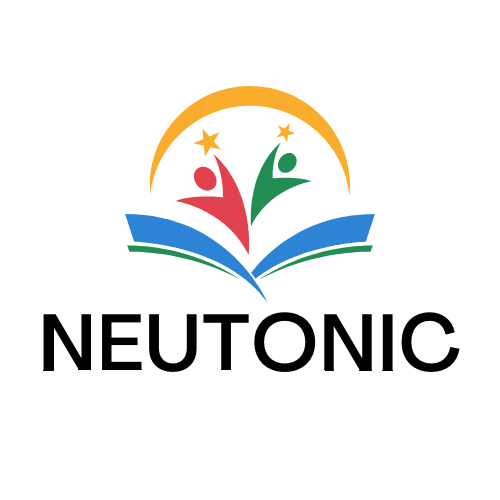In today’s digital age, social media isn’t just for sharing cat videos and brunch photos—it’s transforming higher education in ways that are both exciting and a bit mind-boggling. Imagine a world where students connect with professors via TikTok dances or where universities host virtual open houses on Instagram Live. It sounds wild, but this is the new frontier of learning.
Social Media Higher Education
Social media significantly shapes higher education. Platforms accommodate dynamic interactions between students and professors, enhancing the overall learning experience.
The Role of Social Media
Social media serves as a bridge between educators and learners. Various platforms facilitate real-time communication and collaboration. Universities utilize these tools for promoting events and sharing important updates. Professors harness social media to engage students through creative content. Engagement increases when educators participate in discussions on trending topics.
Benefits for Students and Institutions
Students gain immediate access to resources and support through social media. Networking opportunities arise, enabling connections with peers and industry professionals. Institutions benefit from expanded visibility and brand awareness. Recruitment efforts improve as potential students explore programs online. Additionally, real-time feedback enhances the learning process, allowing institutions to adapt swiftly to student needs.
Effective Use of Social Media for Learning

Social media offers innovative approaches for enhancing higher education experiences. Engaging with students through these platforms fosters interactivity and builds community.
Engaging Students Through Online Platforms
Interactive content attracts students’ attention and keeps them involved. Platforms like TikTok and Instagram allow professors to create engaging videos that showcase course material. Creative challenges and social media campaigns encourage student participation. Professors use trending topics to initiate discussions, making learning relatable. This approach not only sparks student interest but also promotes peer-to-peer interaction. Through these engaging experiences, students feel more connected to their education.
Enhancing Collaboration and Communication
Collaborative projects benefit from social media tools. Platforms facilitate real-time communication among students and professors, breaking traditional barriers. Students can share ideas instantly within group chats or dedicated course pages. Feedback becomes immediate with comment sections and direct messaging capabilities. Universities also announce events and important updates, ensuring everyone stays informed. Enhanced communication fosters a strong sense of community and encourages collective problem-solving among students.
Challenges of Social Media in Higher Education
Social media in higher education brings unique challenges that institutions must address. While these platforms enhance engagement, they also introduce significant risks.
Privacy Concerns
Privacy concerns arise when universities and students interact online. Institutions must protect personal information shared on social media profiles. Cybersecurity threats can compromise sensitive data, making vigilance essential. Social media policies must outline acceptable use practices to safeguard student privacy. Furthermore, educators should educate students on the risks of oversharing. Transparency in data management can help build trust among users, ensuring their information remains secure.
Misinformation and Its Impact
Misinformation on social media presents a challenge for higher education. False information can spread rapidly, affecting student perceptions and decisions. Institutions face difficulty verifying the accuracy of content shared on these platforms. Students may rely on unverified sources for critical academic information, leading to confusion. Effective communication strategies are crucial in combating misinformation. Universities should actively monitor social media discussions and provide accurate information to counter false claims. Engaging students in media literacy initiatives can help them better discern credible sources, promoting informed decision-making.
Future Trends in Social Media Higher Education
Social media’s influence on higher education continues to evolve, with emerging technologies driving innovative practices. These developments enhance educational experiences and engagement among students and faculty.
Emerging Technologies
Artificial intelligence (AI) plays a crucial role in personalizing learning experiences. AI tools analyze student interactions on social media platforms to tailor content and recommendations. Virtual reality (VR) creates immersive environments for students, allowing them to participate in simulated learning experiences. Augmented reality (AR) can enhance traditional classroom settings, bringing additional context to lessons. Blockchain technology ensures secure and transparent records of educational achievements. Each of these technologies contributes to a more engaging and responsive educational ecosystem. Universities embracing these advancements will likely gain a significant advantage in attracting and retaining students.
Predictions for Student Engagement
Data suggests that student engagement will continue to rise, driven by interactive content and direct communication. Live-streamed events will facilitate real-time interactions between students and educators. Polls and Q&As conducted via social media platforms empower students to voice their thoughts and opinions. Gamification elements can transform traditional learning experiences into enjoyable challenges. Peer-led discussions utilizing social media fosters a sense of community, attracting more participants. Institutions prioritizing innovative engagement strategies are expected to see improved retention and satisfaction rates among students.
Conclusion
Social media is reshaping the landscape of higher education in profound ways. It not only enhances communication between students and educators but also fosters a vibrant community where learning thrives. As institutions embrace innovative tools and strategies, they can significantly improve student engagement and satisfaction.
While challenges like privacy concerns and misinformation exist, the benefits of social media in education far outweigh the drawbacks. By prioritizing effective social media practices and promoting media literacy, institutions can navigate these challenges successfully.
Looking ahead, the integration of emerging technologies will likely further transform educational experiences, making learning more interactive and accessible. The future of higher education is bright as it adapts to the dynamic nature of social media.





